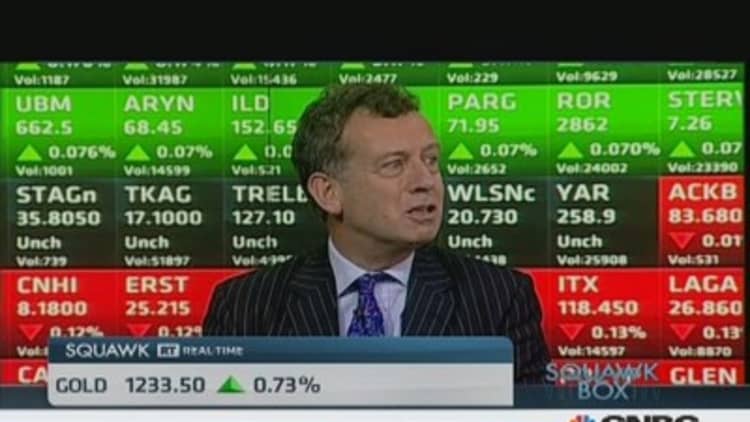Yesterday's decline, a small down day with poor volume, is being mostly dismissed.
The first five days indicator —and in particular the "As goes January, so goes the year" barometer (88% accurate since 1950, according to The Stock Trader's Almanac)—are far more widely followed. One wag said yesterday's debacles brought us back to levels last seen on...December 26th!
Regardless: your view on how 2014 will go depends on your view on two subjects: earnings and interest rates.

Earnings grew roughly 5.4 percent in 2103, according to S&P Capital IQ, while revenues grew only 1.8%. The central complaint has been that earnings growth is mostly due to cost-cutting, and not sales growth. There are a few outliers on that front, such as healthcare, but it is certainly a legitimate complaint.
The hope among those who are moderately bullish—Dan Wiener among them—is that top-line growth may finally start to pick up in 2014. If it does, it will have to come from consumers.
Citizens are continuing to reduce both consumer and mortgage debt, and personal incomes are rising. Unemployment is slowly dropping, though many still remain out of the workforce and the quality of many of the new jobs is low.
We will quickly turn to earnings, as Alcoa will report on Thursday, January 9th. On interest rates, the world is dividend into two camps: those who believe that the economy will start improving notably and that inflation will explode, and those that don't.
Most forecasts project that the Federal Reserve will not raise short-term interest rates in 2014. The Fed does not control long-term rates, but most strategist believe that 10-year rates will move from the current three percent range to 3.5 to 4 percent in 2014, depending on the rate of economic growth.
In other words, most projections are for a gradual increase in interest rates as the economy improves. That kind of increase is something stocks might be able to handle, which is why so many forecasts have stock gains of roughly 10 percent for 2014.
Could rates go over 4 percent? Possibly, but Dan Wiener, who is President of Advisor Investment Management and writes the Independent Advisor for Vanguard Investors, notes that over the past several decades the 10-year yield has never traded more than 400 basis points higher than the Fed funds rate, the current target of which is 0 to 0.25 percent. That's an interesting stat.
Elsewhere
1) One issue to keep an eye on is emerging markets: with the and yen both up yesterday, and disappointing Chinese PMI numbers, the main (EEM) fell almost four percent yesterday, closing at its lowest closing level since early September.
Korea is down 3.2 percent in the last two days, and Thailand down 5.7 percent.
—By CNBC's Bob Pisani



